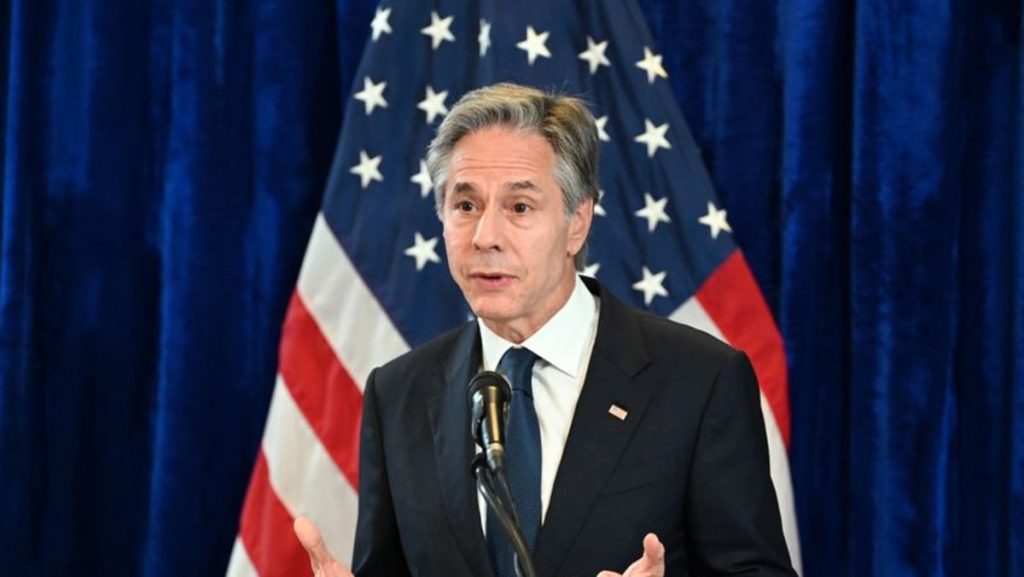US Secretary of State Antony Blinken expressed deep concern during the East Asia Summit in Laos about the potential spread of conflict in the Middle East. He emphasized that Washington is focused on utilizing diplomacy to address the situation in the region, particularly in light of what he referred to as an Iranian-led axis of resistance. Blinken highlighted the United States’ ongoing efforts to prevent conflicts from escalating and ensure that the humanitarian needs of individuals in Gaza are addressed.
During the summit, discussions centered on various global issues, including the war in Ukraine, Myanmar’s civil conflict, climate change, tensions in the Taiwan Strait, and confrontations in the South China Sea. The importance of avoiding all-out war in Lebanon was underscored by United Nations Secretary-General Antonio Guterres, who called for all possible measures to be taken to prevent further escalation of violence in the region. The US has been working diligently through deterrence and diplomacy to prevent the conflict from spreading and has stressed the significance of Israel addressing the humanitarian needs of individuals in Gaza.
In addition to addressing the situation in the Middle East, participants at the summit, which included leaders and diplomats from ASEAN, India, China, Japan, Russia, South Korea, Australia, New Zealand, and the United Nations, also discussed critical issues such as climate change and security concerns in the South China Sea, a vital trade route that sees billions of dollars in ship-borne trade annually. The focus on preserving peace and stability in the region was evident throughout the discussions, with a recognition of the interconnectedness of global conflicts and the imperative to work together to find solutions.
Blinken emphasized the United States’ commitment to diplomacy and dialogue as key tools in addressing conflicts and promoting peace in the Middle East and other regions. He highlighted the importance of preventing conflicts from escalating and ensuring the well-being of civilians affected by hostilities, such as those displaced in Lebanon and Gaza. The US has been actively engaging with Israel and other stakeholders in the region to address humanitarian needs and prevent further violence.
The East Asia Summit served as a platform for global leaders to engage in discussions on pressing international issues and work towards collective solutions. From addressing conflicts in the Middle East to navigating security challenges in the South China Sea, participants underscored the importance of cooperation and dialogue in promoting peace and stability in the region. The summit highlighted the interconnected nature of global conflicts and the need for multilateral efforts to address complex challenges effectively.
In conclusion, the East Asia Summit provided an opportunity for leaders and diplomats from various countries to discuss regional and global issues, including the conflict in the Middle East, climate change, and security concerns in the South China Sea. The emphasis on diplomacy, dialogue, and cooperation as essential tools in addressing conflicts and promoting peace underscored the necessity of multilateral efforts in finding sustainable solutions to complex challenges. The commitment of participants to work towards peace and stability in the region was evident throughout the summit, reflecting a shared dedication to addressing global issues through collaboration and collective action.


